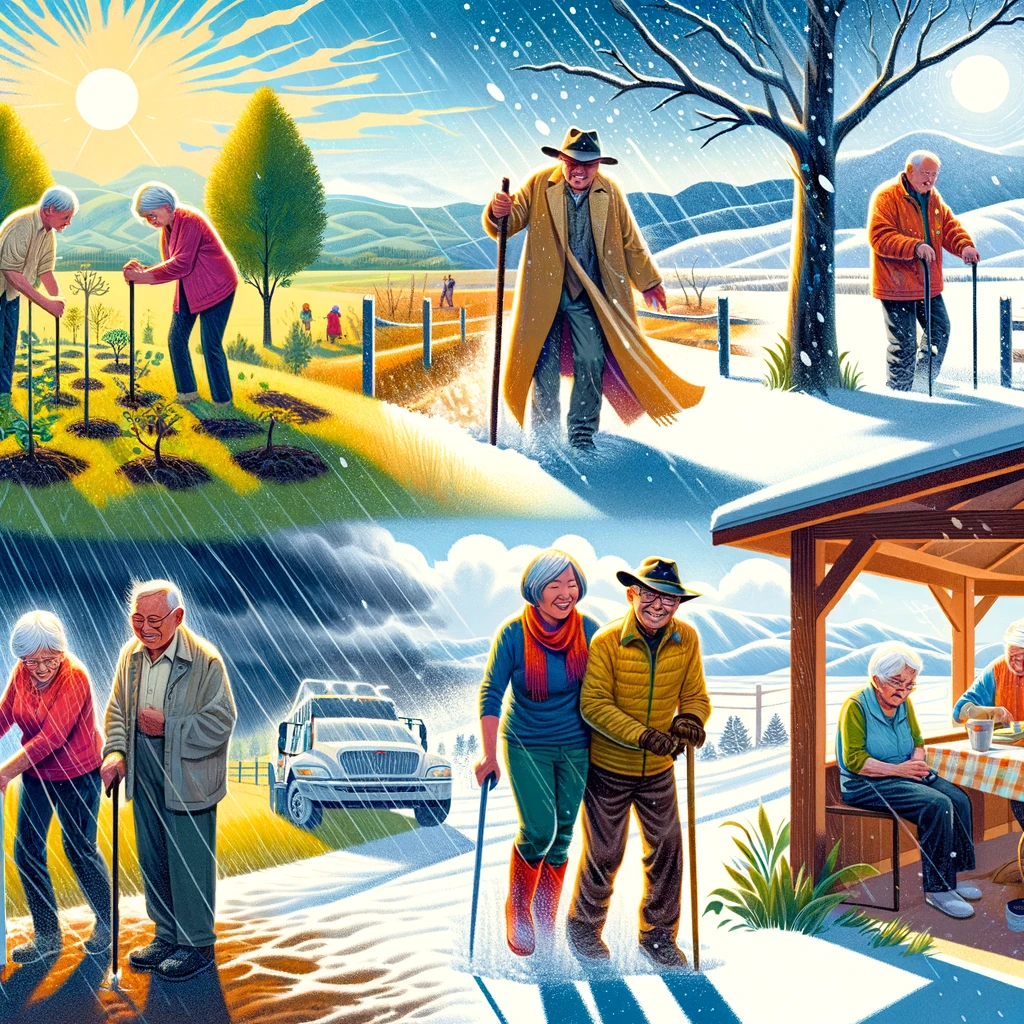Climate change poses specific challenges for rural elder care, as extreme weather can disrupt essential services, exacerbate health problems, and increase isolation. Seniors may face heat waves without adequate cooling or be cut off by floods or storms. Addressing these issues requires robust solutions: infrastructure improvements for reliable power and water, emergency planning tailored to senior needs, and community support systems to ensure seniors are not left isolated during extreme weather events. Rural communities must adapt and strengthen their support for the elderly as these climate-related events become more frequent and severe.
Understanding Rural Elder Care
In rural areas, the lack of infrastructure and healthcare resources can leave seniors particularly vulnerable to the effects of climate change, such as extreme temperatures and natural disasters. These areas may struggle with insufficient cooling systems during heatwaves or inadequate heating solutions in cold snaps, directly affecting elderly health. Additionally, rural healthcare facilities may be less prepared for climate-induced emergencies, leading to gaps in care when it’s needed most. To ensure the well-being of rural seniors, it is critical to thoroughly analyze these specific challenges, which can inform targeted support strategies, including enhanced healthcare services and emergency response plans tailored for these communities.
Impact of Climate on Rural Elder Care
Weather influences senior health in numerous ways, disrupting everyday life and exacerbating chronic conditions. From heatwaves taxing hearts to frigid temperatures intensifying arthritis, climate alterations pose serious health risks. However, with innovative solutions like telehealth—employing AI to predict health risks related to weather, one can manage preventive care effectively.
Bridging the Gap: Insights and Resources
While addressing climate-related health issues is complex, there are workable ways to bridge this gap in rural elder care using community engagement, improved healthcare access, and effective medication management.
Utilizing Technology and Telehealth
Embracing technology is integral to healthcare—especially in remote areas. Telehealth services offer valuable medical help remotely, filling the void in rural medical access.
Enhancing Community Engagement
Engaging communities brings a multitude of benefits. It fosters the spirit of looking after the elderly amongst community members, creating a robust local support network that is especially important in climate-induced crises.
Effective Medication Management
Effective medication management strategies using AI and digital platforms can help monitor climate-related health impacts on seniors.
Protecting Rural Elder Care
To weather the years of rural elder care, a blend of technology, community engagement, and sound medication management is essential. As we continue to explore and implement these solutions, we can better preserve our seniors’ well-being amidst changing climates.

Leave a Reply